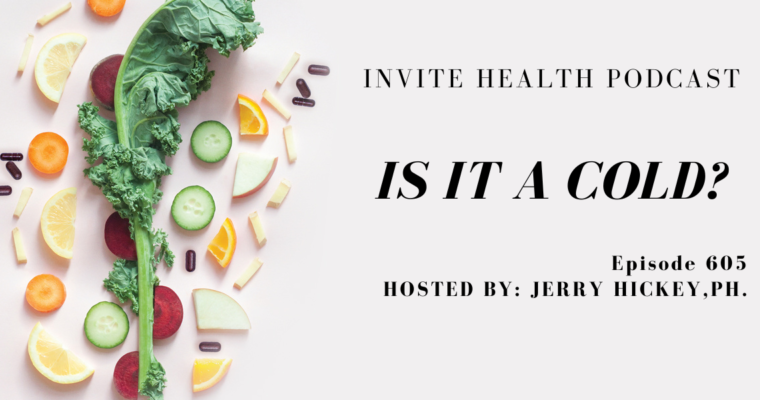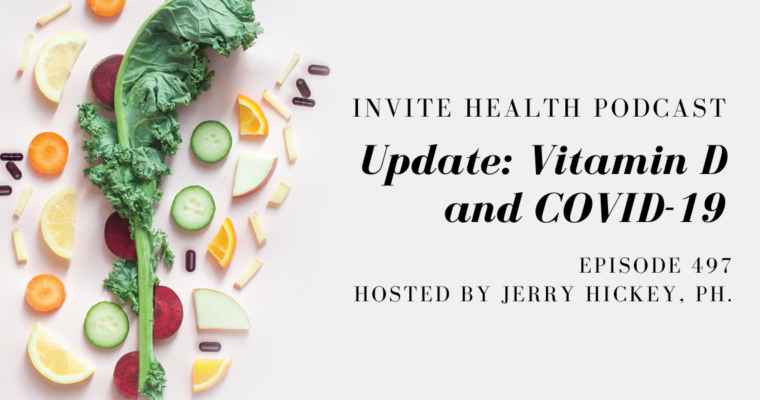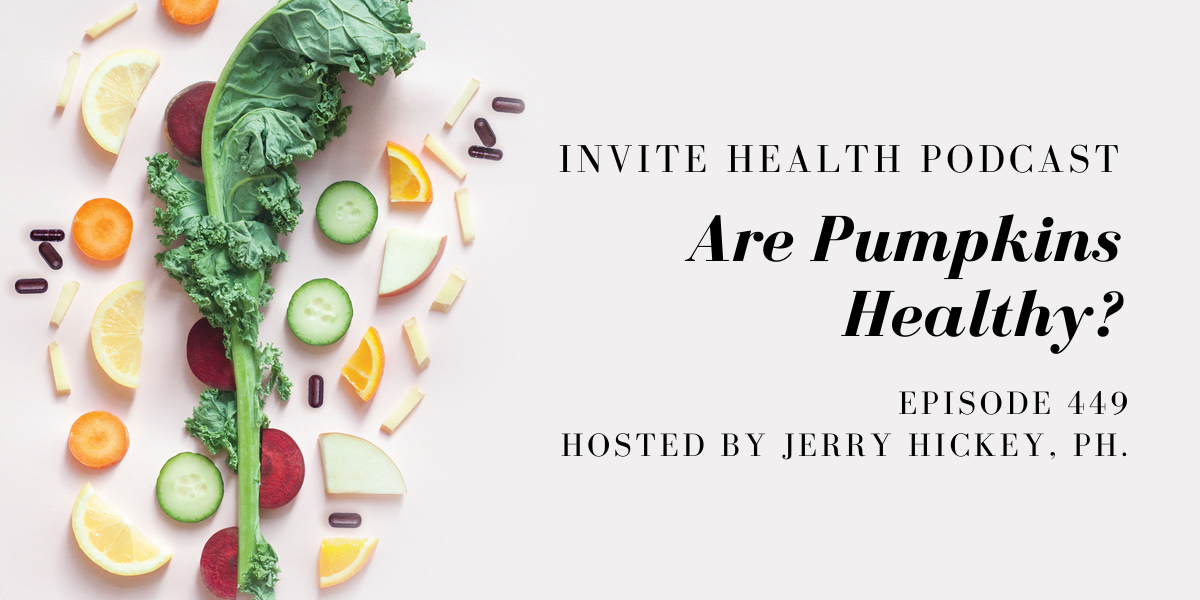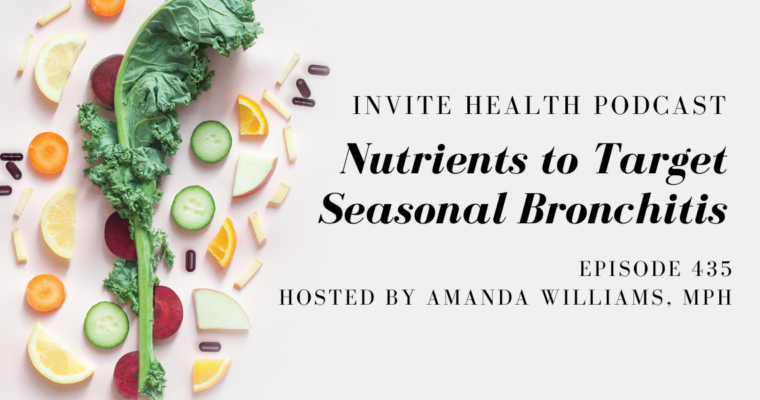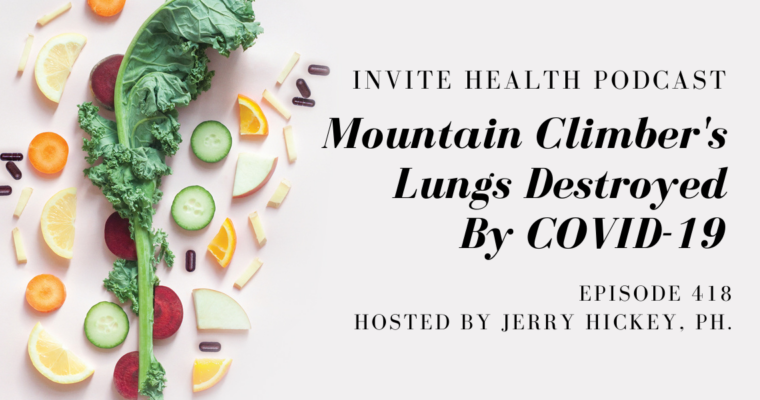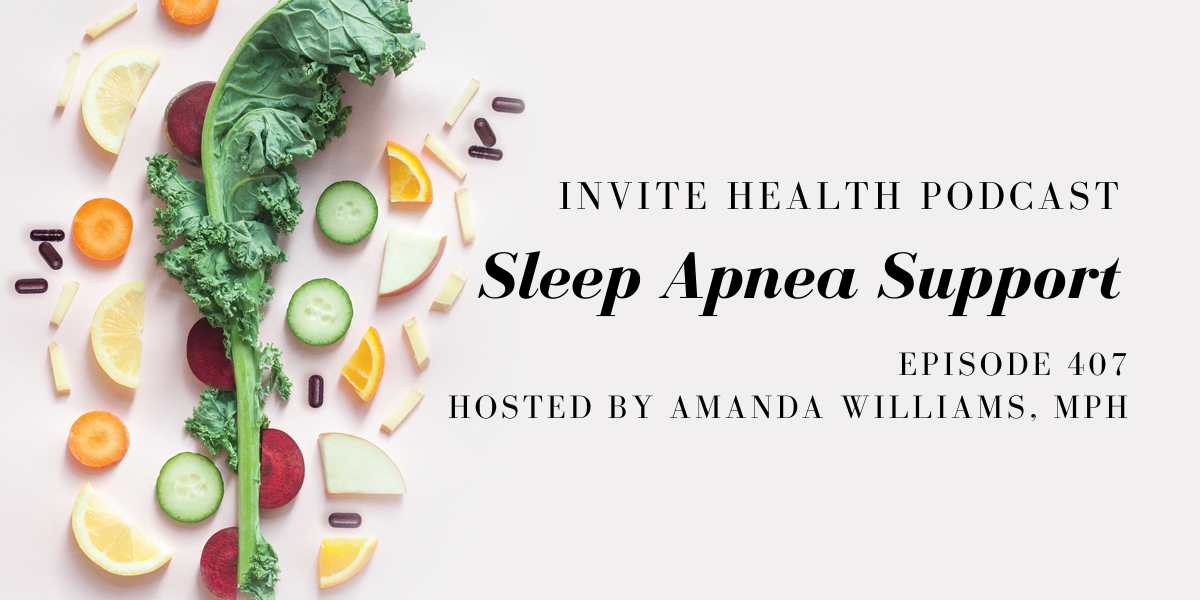pumpkins
InViteⓇ Health Podcast, Episode hosted by Jerry Hickey, Ph.
Subscribe Today!
It’s fall, which means it’s pumpkin season and harvest season. We identify pumpkins with really nice things, like this beautiful time of year. We also identify pumpkins with desserts and holidays like Thanksgiving and Halloween. It’s a lot of fun, but the question is: are pumpkins healthy?†
The health benefits of pumpkins
Pumpkin pie, pumpkin spice lattes at Starbucks and pumpkin ice cream, you don’t think of those as health foods. But pumpkin itself is pretty healthy. It’s a member of the cucurbit family because they’re a variety of squash. This family includes pumpkins, melons and cucumbers. There are a lot of healthy things in pumpkins. For instance, it’s orange. That’s due to beta carotene. Beta carotene is good for your vision, immune system, thyroid gland, skin and hormone regulation.†
The beauty of beta carotene is that it is, very slowly and in a very controlled fashion, converted into Vitamin A in the liver. Vitamin A has a lot of benefits in the body. We’re in cough and cold season and on top of that we still have COVID hanging around. Vitamin A was originally called the “anti-infective vitamin.” Vitamin A is needed to make your skin, which serves as a barrier for the outside environment, keeping viruses, bacteria, yeasts, molds and parasites out of the body.†
MOUNTAIN CLIMBER’S LUNGS DAMAGED BY COVID-19 – INVITE HEALTH PODCAST, EPISODE 418. Listen Now>>
Vitamin A is also needed by your mucosal cells. These are very important cells that line your respiratory tract, digestive tract and urinary tract. One form of Vitamin A called retinoic acid is produced by the immune cells in these tissues. This allows these cells to capture infectious organisms like viruses and bacteria and present them to our T-cells, which call in the troops to destroy the infectious organism.†
Pumpkins also have a lot of fiber and a lot of potassium. These make it very healthy because it’s also low in calories, low in salt and doesn’t have cholesterol.†

Supporting immune health
There are other things in pumpkin that are good for your immune system. There’s Vitamin C, which you need for chemotaxis and respiratory burst. If somebody sneezes on you with COVID-19 or the flu, your immune cells have to travel to the site of the infection to kill the virus before you get sick. That’s called chemotaxis. Your immune cells soak up the available Vitamin C so they can travel to the site of the infection. Then there’s respiratory burst, when your immune cells release their chemical arsenal to kill the infection. That requires Vitamin C also.†
You’re also getting Vitamin E. Vitamin E and Vitamin C are both in the lipid layer surrounding your immune cells. If you lack these nutrients, your immune cells don’t work because they get damaged by their own chemical arsenal. Your immune system works better when it has the nutrients you get from eating pumpkins or even sweet potatoes or carrots.†
THE ROLE OF VITAMIN E IN DIABETES & METABOLIC SYNDROME – INVITE HEALTH PODCAST, EPISODE 291. Listen Now>>
We don’t sell pumpkins at InViteⓇ Health, but we do have this delicious powder called Oranges HxⓇ. That has a lot of very high quality fruits and vegetables, including tangerines, nectarines, melons and pumpkin seed powder. Pumpkin seeds are loaded with sterols that help you lower your cholesterol. Oranges HxⓇ provides fiber, potassium, natural beta carotene and all the things you find in pumpkins and it’s very easy to mix into liquids.†
In this episode, Jerry Hickey, Ph. discusses the powerful vitamins, minerals and antioxidants found in pumpkins. He details the important benefits of Vitamin A, Vitamin C, fiber and more and also provides a recommendation for a supplement that includes pumpkin seeds as one of its potent ingredients.†
Key Topics:
- What are carotenoids?
- The importance of T-cells
- Additional benefits of Vitamin A
Thank you for tuning in to the InViteⓇ Health Podcast. You can find all of our episodes for free wherever you listen to podcasts or by visiting www.invitehealth.com/podcast. Make sure you subscribe and leave us a review! Follow us on Facebook, Twitter and Instagram at InViteⓇ Health today. We’ll see you next time on another episode of the InViteⓇ Health Podcast.


